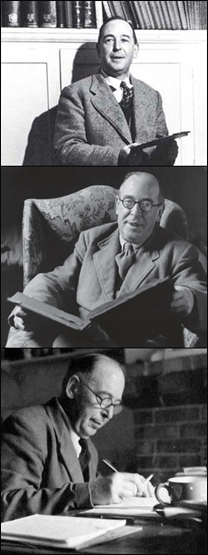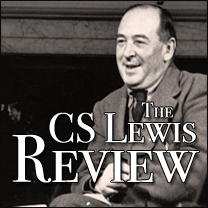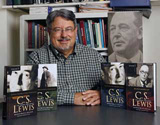
Thinking Aloud of My Movie Moodines
July 31st, 2005 | Skip to comments
(Note: This is an excerpt from the Prologue to one of my two news books on Narnia, coming out in September from Tyndale, Not a Tame Lion: The Spiritual World of Narnia)
Our experience of The Chronicles of Narnia is about to be enjoined, if not challenged, by their incarnation in a new medium: the big-budget feature film. The first of what is intended as a series of movies depicting the exploits of the Pevensie children and others in the land of Narnia is about to appear.
And such a movie will bring new attention-and certainly a new audience, even a new kind of audience-to The Chronicles that no previous however ambitious marketing campaign could ever have achieved. For more than half a century children and adults of all ages have found their way to Narnia via the written word, ever witnesses to the adventure, wit, humor, and profound spirituality of the works as told by the winsome Mr. Lewis. Now they will have a choice in how to enter Narnia.
It is likely that in time the movies will begin to rival in importance and impact the story-telling art, characterization, imagery, and themes found in the original Chronicles, which, of course, were keenly informed by Lewis’s Christian imagination. It is certainly possible the new meanings and encompassing visions gleaned from watching the movies will complement and enhance those already experienced in Lewis’s written works. On the other hand, it is likely that by their very nature the movies will come to overshadow and overwhelm the reading experience of Narnia-as all movies tend to do-blunting or massaging the essential spiritual vision of Lewis, so that they speak more “universally” yet less “particularly” to the viewer. In other words, those literary premises and spiritual principles that most animated Lewis as he sought to depict them imaginatively within the Narnian landscape could be “lost in translation” as the stories migrate from text to film.
We can hope that this is not the case, and no one would be happier than me should the movies do justice to these beloved tales. But I have endeavored in this book to take nothing for granted, making it my goal specifically to orient the willing reader new to The Chronicles (as well as the veteran sojourner there) to what we might call Narnia’s spiritual geography, that is, to its ultimately Christian themes, and, most assuredly, to its undeniable center: King Aslan, the Great Lion, Son of the Great Emperor-Beyond-the-Sea. Aslan must again be the one to save Narnia, to rescue it from becoming just one more kingdom swept away in the homogenizing flood of popular culture that jettisons its core convictions and compelling charm.
Indeed, this small book’s title pays greatest homage to Aslan, in my mind, Lewis’s greatest literary creation. “He is not a tame lion,” Mr. Beaver intones near the end of The Lion, the Witch, and the Wardrobe, and later, in Chapter Two of this work, we will explore that statement in some depth within the precincts of the Chronicles. But for now, let me reflect on the relevance of the title to this book’s contents as a whole. By titling my work, Not a Tame Lion, I am implying, no, stipulating, that without Aslan the Narnian adventures would have little meaning, lesser value, and certainly no spiritual poignancy or potency.
There are books a plenty which feature vagabond children making their entrance and exit through strange and dangerous worlds using their ingenuity or creativity or sheer bravado, learning their lessons and claiming their renown. But Narnia is not a world one simply passes through on the way to somewhere else, storing up experience for the next fantastic journey. Narnia is a spiritual address, a world imbued with ultimate destinies determined by profound personal choices driven by individual allegiances, either to eternal truth or mournfully temporal falsehood. But wait, what do I mean by “spiritual”?
Narnia is a “cosmos,” an orderly, yet created world that has a discernible beginning, middle, and end. Narnia’s ordered existence is willed-rather, sung-into being by Aslan. Under Aslan’s rule, there is, if you will, both a “natural order,” and a “supernatural” or spiritual order. There is, on the one hand, the day-to-day, the deeds, the thoughts, the outcomes wrought by each individual; on the other hand, there is a meaning and an impact beyond these deeds, thoughts, outcomes that point to Something Else, and, what’s more, to Someone Else. Here we discover that we are not our own. Our lives rest in Another.




Comments
No comments yet.
RSS feed for comments on this post.
Sorry, the comment form is closed at this time.